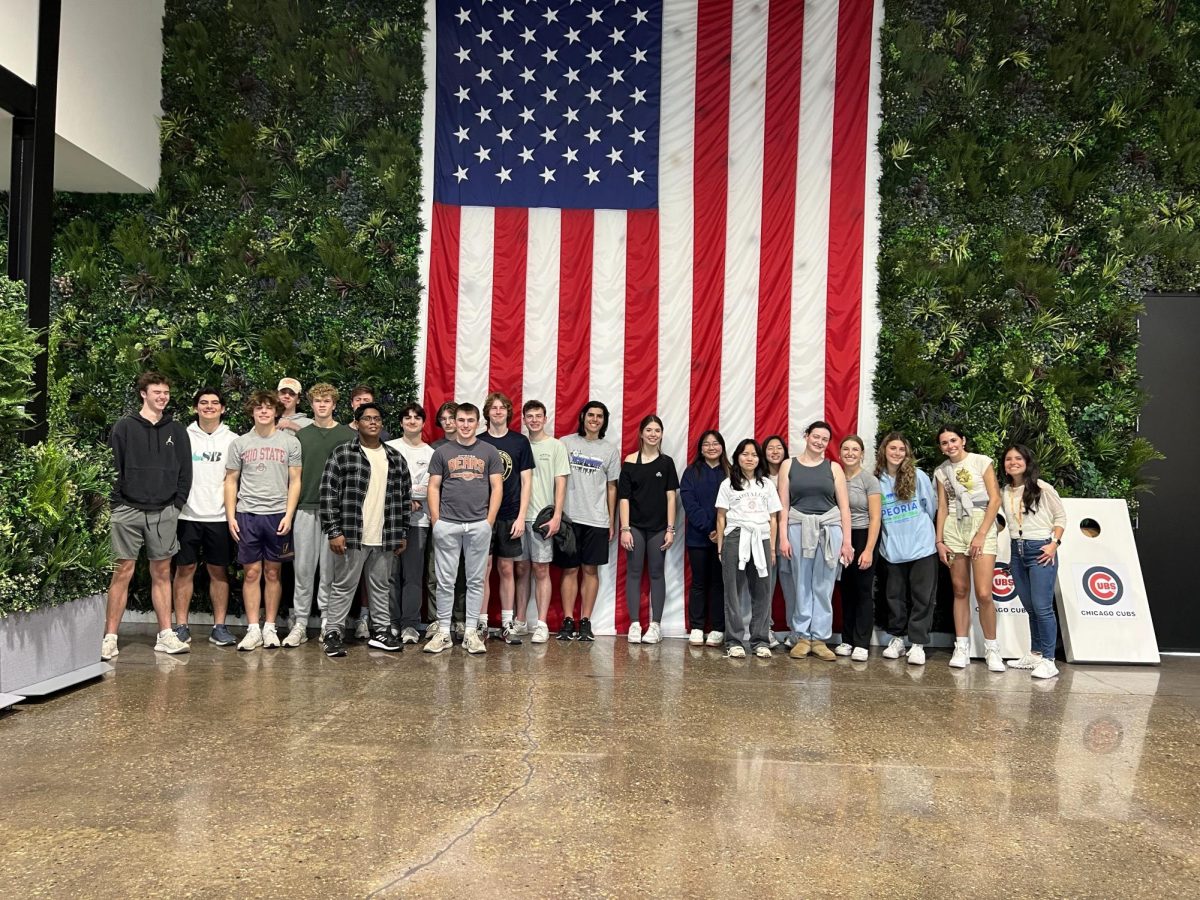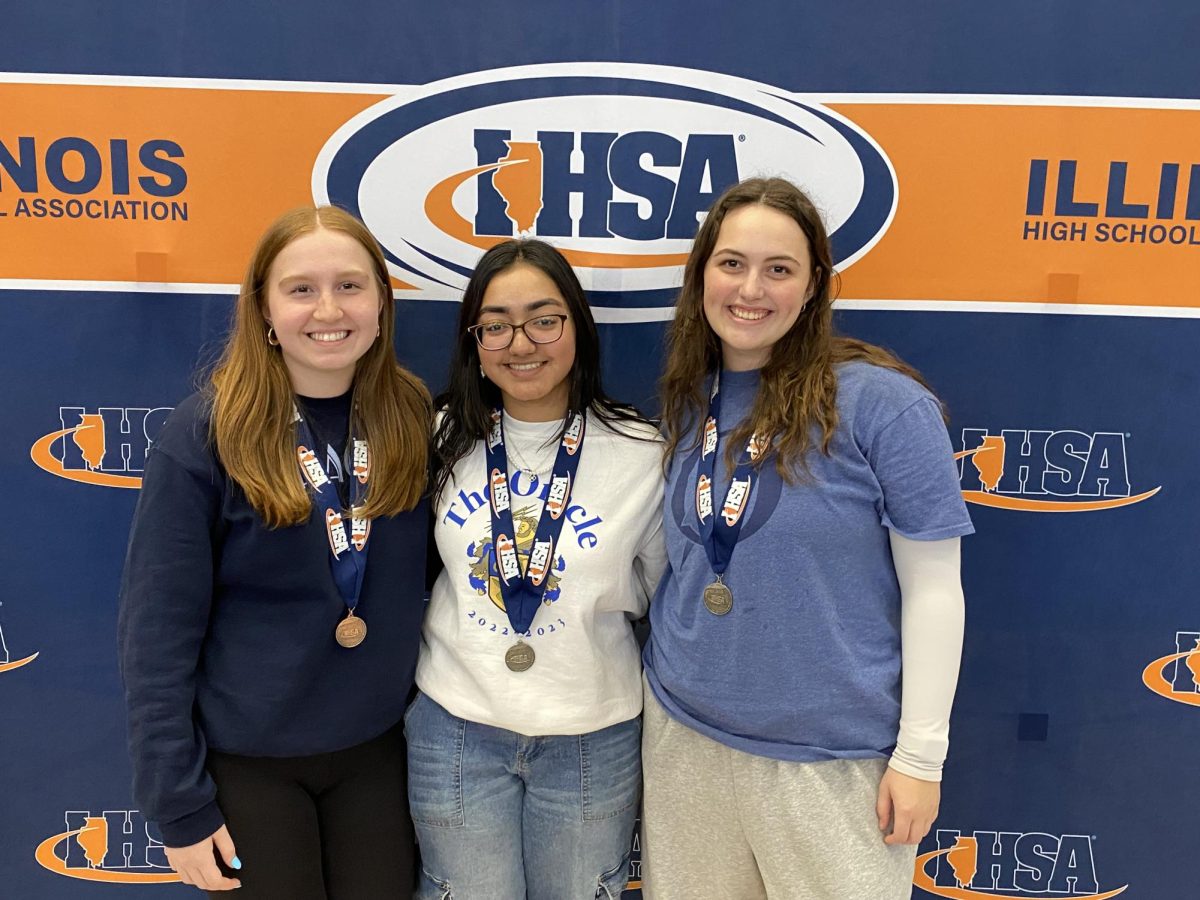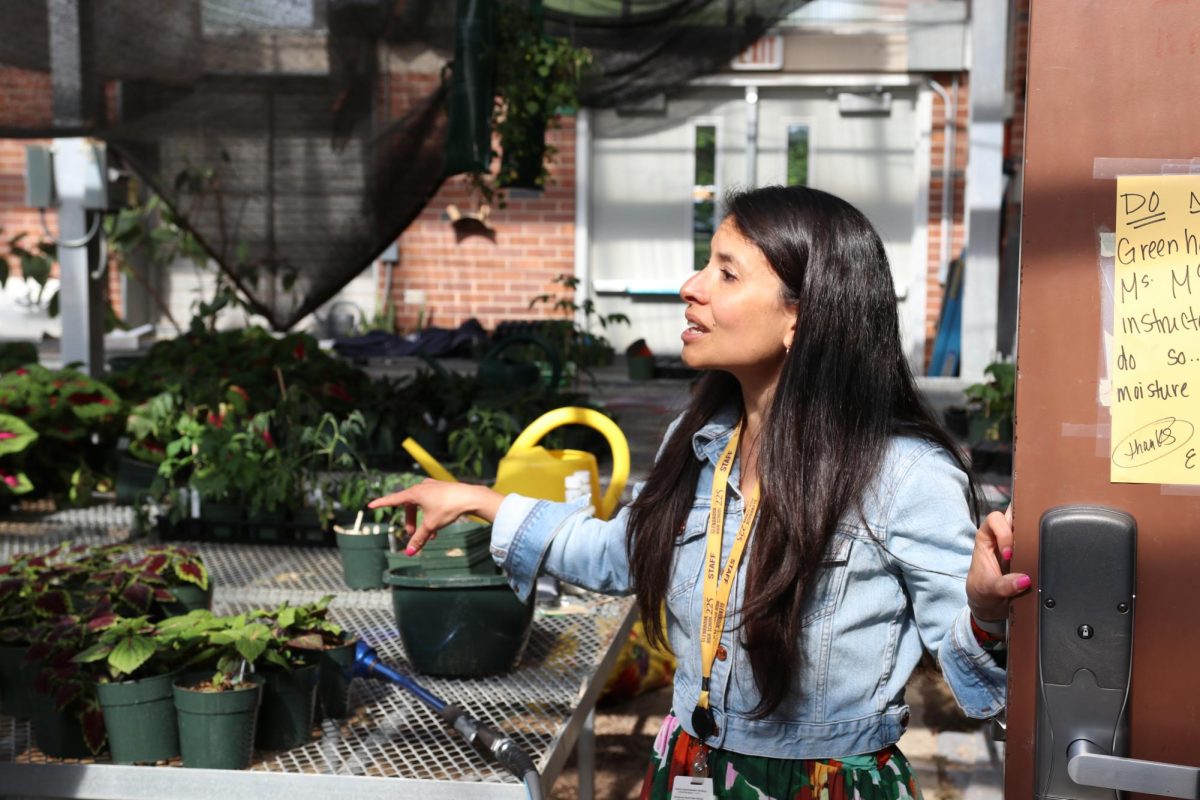In South’s AP Environmental Science (APES) classes, each unit is integrated with a real-life application to help students learn, APES Teacher Lisa Pavic said. On Dec. 6, Pavic’s APES classes presented their idea of adding a living plant wall in the New Pit to the administration and the students’ parents. The project’s outcome will be a wall of synthetic fibers with plants sticking out horizontally, Nora Albee, senior and APES student, said.
The living plant wall project was introduced by the seniors in APES last year but was not carried out, Pavic said. This year, things are much more realistic because they now have a budget worked out with Intrinsic Landscaping, the local business that South is working with. With this newly gained information, students presented logistics, expected costs, and benefits the living wall would have on South.
Furthermore, to help with the budget and make the project possible, South’s class of 73’ also donated $7,373.73 in honor of their 50 year reunion, Albee said. Pavic’s Gold 1, Gold 2, and Gold 4 classes each presented in the Student Activities Center on Dec. 6, where parents, administration faculty, and the class of ‘73 were invited, Albee added.
The project-based APES curriculum drives the learning process, Pavic said. Beyond making South more sustainable and helping students apply what they learn to reality, the project strives to give students the opportunity to pursue their interests, lead their own project, and become better problem-solvers and collaborators, she added.
“[The students’] goal is to share what [they] know,” Pavic said. “It’s not just learning and trying to solve a problem, but it’s sharing your work with somebody else.”
For the presentation, students were split into different groups and areas to focus on and present, Albee said. Albee was a part of the group focused on air quality, which showed her new aspects of South, she said.
“I never really thought about the air quality in this school,” Albee said. “It was interesting [to see] how much particulate matter can be filtered out of the air by having a living wall.”
The wall will also provide science classes’ data that can be analyzed, in addition to helping South’s environment as a whole, Azara said. Though there are concerns that the plants will attract more bugs, the living wall will return even more benefits, she added.
“It can actually decrease loud noises in the hallways,” Azara said. “Plants have a cool capability where they can absorb or reflect sound, so it can decrease sounds in the hallways by 15 decibels.”
Another important feature of both the project and presentation was determining what plant species will be used for the living wall. The class took into account the plant’s purposes and the impacts of invasive species, senior Tess Varga said.
“We’re focusing more on the native plants that [could be used] and the plants that will thrive in an indoor environment and at [South],” Varga said.
For students, this project taught more than just the APES curriculum; it also gave them an opportunity to make a real difference to South, Pavic said.
“[The project] is a neat way for [students] to have agency, and feel like something they did [can] make a difference,” Pavic said.








